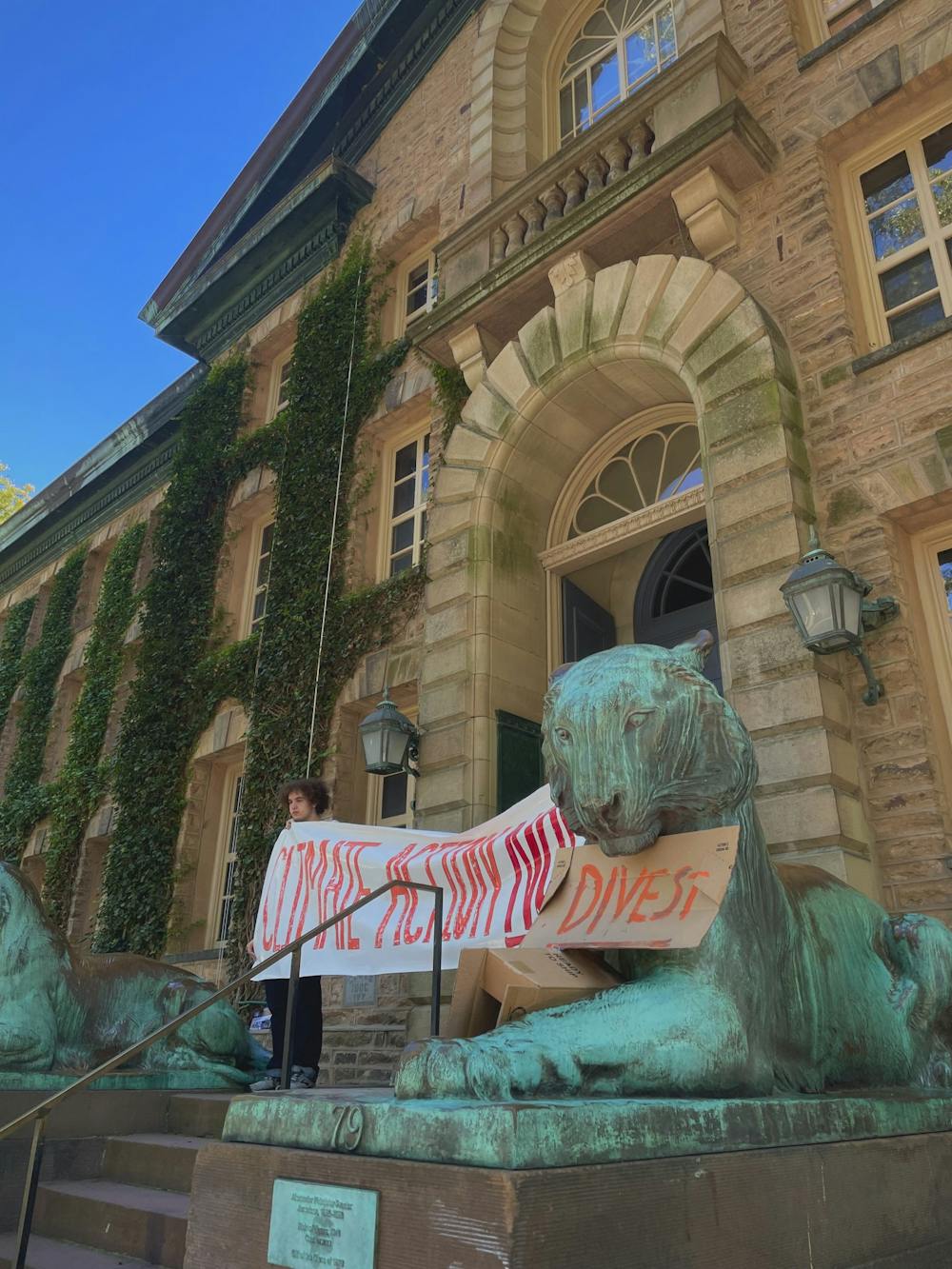It has been about nine years since fossil fuel divestment was first brought to the table at Princeton. Since then, nearly 1,500 institutions have divested or made plans to divest a whopping total of $39 trillion from the fossil fuel industry. All the while, the University continues to deliberate over whether companies like ExxonMobil, BP and Shell are egregious enough polluters for Princeton to end its existing research partnerships with them. Nearly a decade of students, alumni, faculty, and staff growing increasingly more passionate about the issue of divestment has passed, and yet the University has yet to fully divest and dissociate from the fossil fuel industry.
Divest Princeton submitted its most recent proposal for fossil fuel divestment almost exactly two years ago. Since then, the University has implemented countless bureaucratic obstacles and impromptu committees for divestment, which effectively stall any real change to the current investments of the endowment and research partnerships. For instance, the University has created a new faculty panel and a new administrative committee to review the Board of Trustee’s decision from last May, which advocated for just partial divestment from select sectors of the fossil fuel industry. Throughout the two-year-long review process, University administration has continuously avoided transparency about the divestment proposal review process and has yet to commit to any clear timelines around final decisions and actions on divestment.
The University’s lack of serious and timely action in the face of such an overarching existential threat makes activists like myself impatient. The over 3,000 Princetonians who have signed in support of divestment have been left waiting while our school continues to invest in and partner with an industry actively imperiling our futures. Divest Princeton has called time and time again for the University to act in the service of humanity and end its ties to the harmful fossil fuel industry. And time after time, Princeton fails to act.
After nine years of fossil fuel divestment movements and two years since the latest divestment proposal was introduced to the Resources Committee, we are done waiting for Princeton to lead. This is why today, Divest Princeton has raised the stakes and filed a legal complaint with the Attorney General of New Jersey alleging that the University has violated its duty as a nonprofit by investing in an industry that is causing harm to its community and students. This follows the precedent set by the Harvard and Cornell University divestment campaigns, with both universities having since divested. We hope that by demonstrating just how serious we are about fossil fuel divestment, the University will finally take the threat of climate change seriously and end its ties with the fossil fuel industry for good.
In addition to our complaint, four other university divestment campaigns (Yale, Stanford, and Vanderbilt Universities, as well as the Massachusetts Institute of Technology) also filed complaints against their universities. Divest Princeton is honored to be a part of this historic moment in the divestment movement with these other brilliant organizers, and we hope that this complaint can mark a turning point in our own campaign. We thank you for your continued support as we advocate for the sustainable and equitable investment of our endowment and seek to hold Princeton accountable.
Today, we take our future into our own hands, with the hope that our advocacy will finally result in visible, tangible change toward mitigating the existential climate crisis at hand. We will not rest until Princeton divests.
Hannah Reynolds is a senior in the anthropology department from the Finger Lakes, N.Y. She is also the co-coordinator of Divest Princeton. Hannah can be reached at hannahr@princeton.edu.








